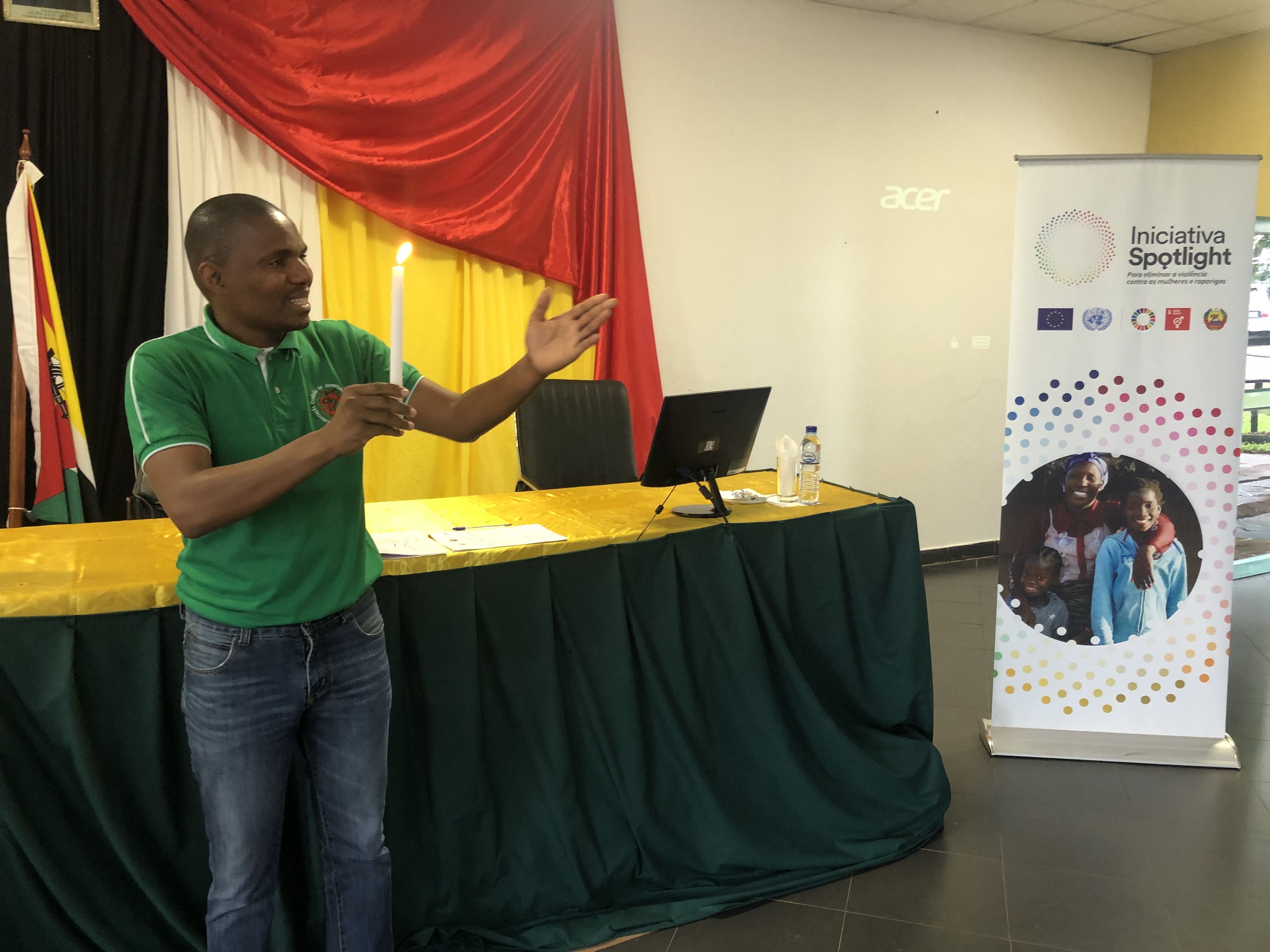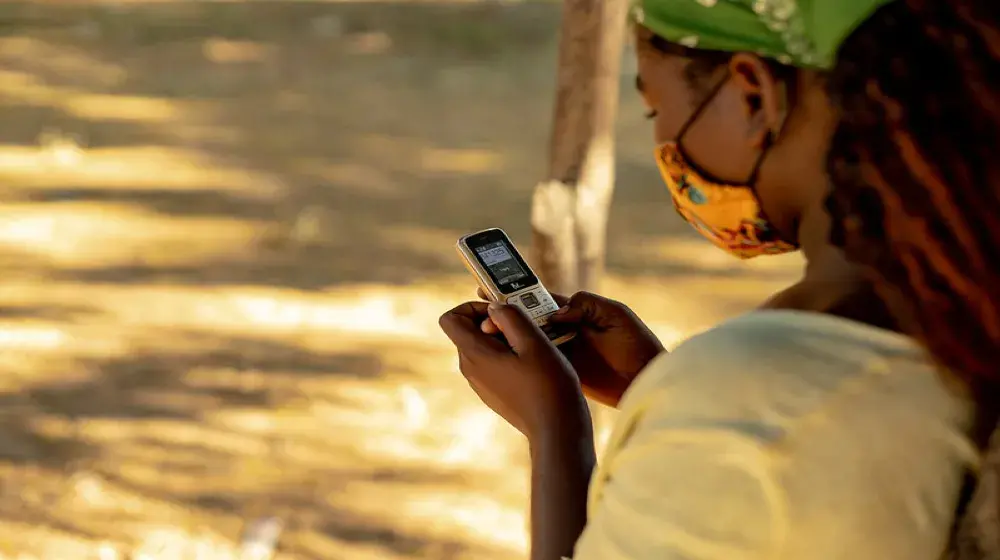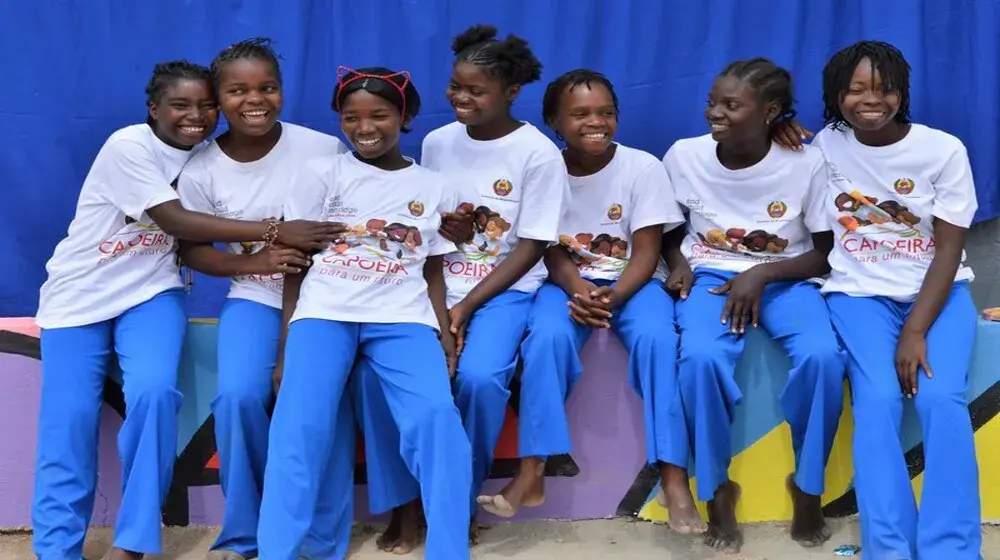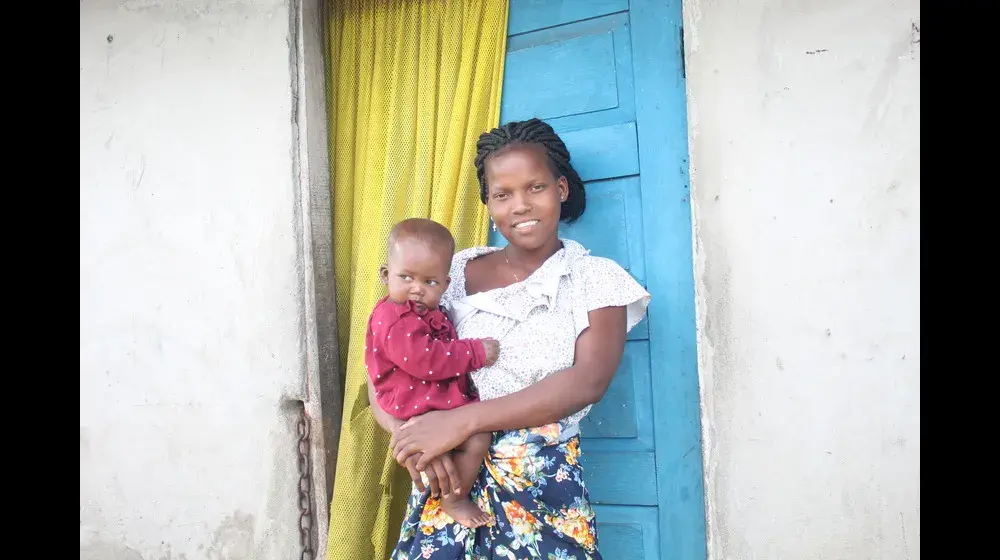
“As mentors, we have been empowered to support young girls and women [who have survived] sexual Gender-Based Violence. Our interpersonal communication and listening skills and empathy will be indispensable in providing survivor-centered support,” shared Evelina and Roda, newly-trained mentors from the City of Chimoio, Mozambique.
Evelina and Roda were some of the 30 youth that participated in a recent mentorship training within the context of the Spotlight Initiative in Mozambique. As part of the training, several community leaders and Government officials offered words of encouragement to the youth: “Denounce all perpetrators of sexual and gender-based violence. As police, we will do our part. We will identify them, notify them, and hand them over for trial in court,” shared Otilia Samuel Filipe, Head of the Provincial Department of Family and Child Care for Victims of Violence in Manica province.

The Spotlight Initiative is a global partnership between the European Union (EU) and the United Nations (UN), including UNFPA, UN Women, UNICEF, UNDP, government, and Civil Society Organizations (CSOs), aiming to end all forms of violence against women and girls.
In Mozambique, the Initiative is led by the Government under the leadership of the Ministry of Gender, Child, and Social Action, and focuses on ending sexual and gender-based violence, eliminating early marriage, and promoting women and girls’ sexual and reproductive rights.

According to the 2011 demographic and health survey, more than one in three women in Mozambique (37%) have experience physical or sexual violence. Referring to these statistics, the Head of the Gender Department of the Provincial Directorate of Social Services in Manica Province, Tomas Junior, shared:
“Sexual Gender-Based Violence in Mozambique has reached alarming levels. It is a national imperative that requires collaborative and coordinated efforts from all stakeholders, namely the Government, Civil Society Organizations (CSOs), religious and community leaders, International Non-Governmental Organization (INGOs), UN agencies, and other donors.”
The 30 youth (17 girls and 13 boys) between the ages of 17 and 24, took part in this four-day training conducted by the Foundation for Community Development (FDC) and the Mozambican Youth Association, Coalizao, with support from UNFPA. Understanding the power of youth to educate peers, identify cases of violence and use creative mediums and technology to raise awareness on the issue, the training focused on equipping youth with the necessary knowledge and skills to become mentors in their communities.
Evelina and Roda were among the 30 youths who participated in the training that was organized as part of the 16 Days of Activism to End Gender-Based Violence (GBV) Campaign, which occurs annually from 25 November to 10 December. The training took place in Chimoio City in Manica Province - one of the three provinces where the Spotlight Initiative is being implemented in Mozambique. Several topics were covered over the four days including roles and responsibilities, desired attributes of a mentor, GBV with a focus on Sexual Gender-Based Violence (SGBV) and child marriage, human rights, access to sexual and reproductive health services, and multi-sectoral GBV services.
“The training equipped me with valuable information, knowledge, and skills. I will hit the ground running! I have three outcomes to reach: Be presented to community leadership, start to identify a potentially safe space, and identify my mentees,” shared Evelina.
As the training came to an end, health professionals in attendance encouraged the youth to reach out to the GBV focal points that work in the health centers throughout the province. The young people were reminded that by coordinating and collaborating with health professionals, they can respond to urgent cases quickly and efficiently. Community leaders were also invited to participate in the training and reiterated their commitment to reduce SGBV in Manica province.

“The recently approved law on the prevention and combat of premature unions by the Government of Mozambique is a huge milestone for community leaders. I’m disseminating the law in my community and bringing more community awareness to the consequences of early and forced child marriages,” shared Goncavels Bernado, Community Leader of Vila Nova in Chimoio.
This network of young mentors, supported by their community leaders and the Government, will conduct weekly mentorship sessions for youth within their communities and make referrals to health, education, and justice services. The mentors will act as role models and change agents in the efforts to prevent and respond to cases of child marriage and SGBV.

The trust created between the mentors and mentees is expected to influence positive transformation in attitudes and behaviors. “It was a great opportunity for the mentors to bring light to their dreams and be able to choose between the good and bad!,” highlighted Antonio Jorge of the organization Coalizão.
With continued support from the EU and the UN, civil society partners, FDC and Coalizão, will continue to support the Government’s and community efforts to work with young people in Manica, Nampula, and Gaza to ensure that cases of gender-based violence and child marriage decrease, even during the COVID-19 pandemic.




